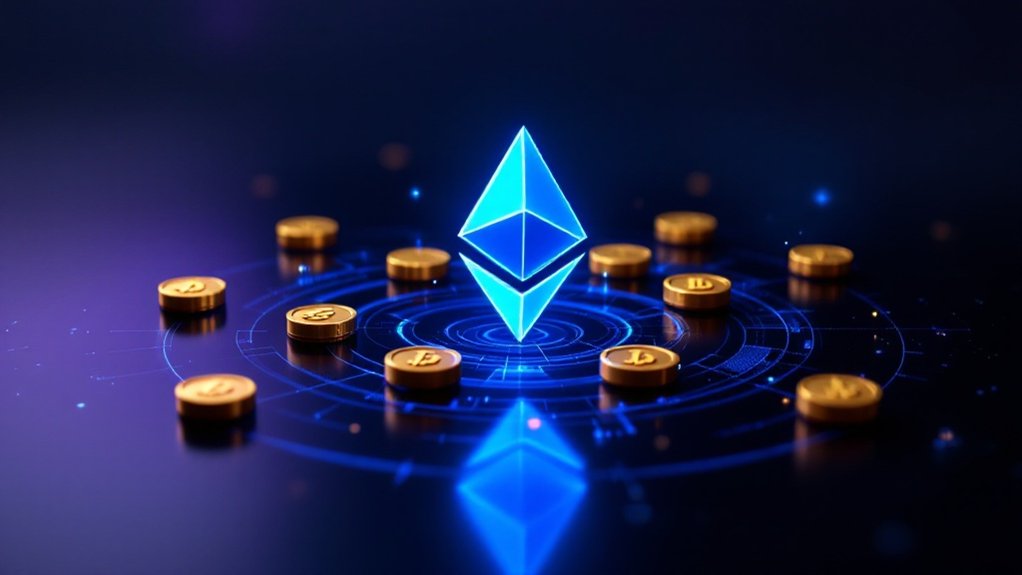Proof of Work (PoW) is a consensus mechanism used in blockchain networks to validate transactions and create new blocks. It requires miners to solve complex computational puzzles, demanding significant processing power and energy consumption. This system creates security through computational difficulty, making attacks prohibitively expensive while maintaining decentralized validation. Bitcoin and several other major cryptocurrencies utilize PoW despite environmental concerns and centralization risks. Alternative consensus mechanisms continue to emerge as the technology evolves beyond its foundational approach.

PoW offers substantial security benefits through its computational requirements. The significant processing power needed to control the network makes attacks prohibitively expensive. As cryptographer Andreas Antonopoulos notes, "The security of proof of work comes from the asymmetry between the cost of solving the puzzle and the ease of verifying the solution." This mechanism guarantees that modifying historical records would require reconstructing the entire chain of subsequent blocks, a practical impossibility once sufficient mining power secures the network. Miners receive rewards for successfully validating transactions and adding new blocks to the chain.
Despite its security advantages, PoW faces criticism for its environmental impact. The competitive nature of mining drives energy consumption to levels comparable with small countries. The process requires miners to solve complex mathematical problems through trial and error, resulting in significant energy waste when miners don't receive rewards. This concern has prompted research into alternative consensus mechanisms. Additionally, PoW networks may experience centralization as professional mining operations with specialized hardware and access to inexpensive electricity dominate the process, potentially undermining the decentralized ethos of blockchain technology. Transaction fees provide additional incentives for miners to maintain network security.
Proof of Work's environmental footprint threatens to undermine its security benefits through unsustainable energy demands and mining centralization.
Several major cryptocurrencies utilize PoW, including Bitcoin, Litecoin, Dogecoin, Monero, and Zcash. Each implements variations on the basic algorithm to address specific needs, such as ASIC-resistance or privacy improvements.
As blockchain technology evolves, alternatives like Proof of Stake gain traction for their energy efficiency and scalability. Nevertheless, PoW remains the most battle-tested consensus mechanism, establishing the foundation upon which the entire cryptocurrency ecosystem was built.
Frequently Asked Questions
Can Proof of Work Function Without Miners?
Proof of Work cannot function without miners.
Miners are essential components who validate transactions and add new blocks by solving complex mathematical puzzles. They maintain network security through computational power expenditure while preventing 51% attacks.
Without miners, the fundamental economic incentives that guarantee decentralization would collapse.
While theoretical alternatives exist, including AI-based consensus mechanisms and distributed computing networks, none have demonstrated the ability to replace miners while preserving PoW's core security features at scale.
How Does Proof of Work Impact Energy Prices?
Proof of Work mining substantially impacts energy prices through concentrated demand.
Large-scale mining operations in regions with inexpensive electricity can strain local power grids, potentially driving up rates for residents and businesses.
This effect was observed in Upstate New York, where electricity costs increased following mining expansion.
When miners relocate to new jurisdictions, as occurred after China's mining ban, they can create sudden demand surges that disrupt established energy markets and pricing structures.
Is Proof of Work More Secure Than Proof of Stake?
Proof of Work (PoW) generally provides stronger security than Proof of Stake (PoS) due to its physical resource requirements.
The computational power necessary for PoW makes 51% attacks prohibitively expensive. With a longer track record since Bitcoin's 2009 launch, PoW has demonstrated resilience against attacks.
However, PoS offers advantages in energy efficiency and transaction speed.
Security differences ultimately stem from their fundamental mechanisms: PoW ties security to energy expenditure, while PoS relies on economic penalties.
Can Proof of Work Algorithms Be Quantum-Resistant?
Proof of Work algorithms can be modified to achieve quantum resistance.
While current implementations using SHA-256 remain vulnerable to quantum attacks via Shor's algorithm, several quantum-resistant alternatives exist. Lattice-based cryptography, hash-based signatures like XMSS, and multivariate cryptographic systems offer promising solutions.
Projects such as Nervos Network and QRL have already implemented quantum-resistant primitives.
However, these solutions face challenges including larger key sizes, increased computational requirements, and potential impacts on transaction throughput.
How Do Mining Pools Affect Proof of Work's Decentralization?
Mining pools significantly impact proof of work's decentralization by concentrating hashpower among fewer entities.
While they provide consistent rewards for individual miners, large pools controlling substantial network hashrate can potentially execute 51% attacks or influence protocol decisions. This centralization creates single points of failure and regulatory vulnerabilities, especially with geographic concentration.
However, miners' ability to quickly switch between pools serves as a natural check against excessive consolidation of power, partially preserving the system's decentralized nature.
References
- https://koinly.io/crypto-glossary/proof-of-work/
- https://www.moonpay.com/learn/blockchain/proof-of-work-vs-proof-of-stake
- https://shardeum.org/blog/what-is-proof-of-work/
- https://www.businessinsider.com/personal-finance/investing/proof-of-work
- https://contabo.com/blog/proof-of-stake-vs-proof-of-work/
- https://www.rapidinnovation.io/post/what-is-proof-of-work-pow-in-blockchain
- https://en.wikipedia.org/wiki/Proof_of_work
- https://paxful.com/university/en/blockchain-proof-of-work
- https://blockworks.co/news/what-is-proof-of-work
- https://www.coinbase.com/learn/crypto-basics/what-is-proof-of-work-or-proof-of-stake





